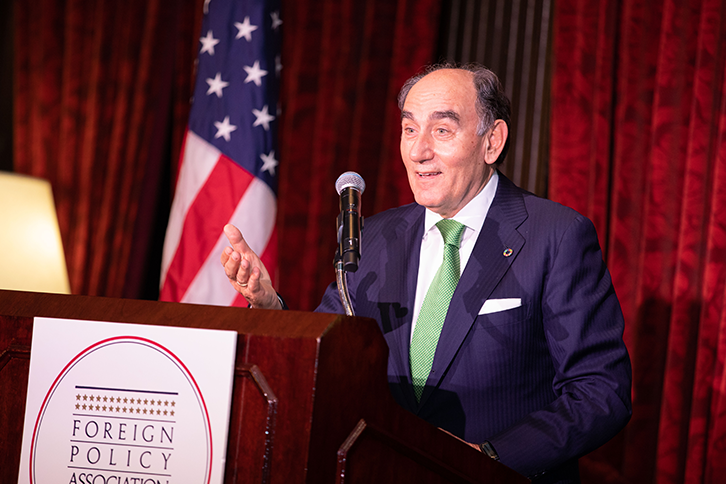Alberto Rubio
Reducing social debt is essential to defend democracy; the integration of Latin America is key for the region to develop its full potential in the new international order that lies ahead; and strengthening ties with the European Union is essential for the economic and political growth of both blocs.
It was on these three axes, and with his sight set on the forthcoming EU-CELAC summit, that the Argentinean Ambassador to Spain, Ricardo Alfonsín, built the speech he gave during the reception he hosted to celebrate the bank holidays of 25 May.
Alfonsín began his reflection by highlighting the “social debt” that Argentina, and by extension all of Latin America, has “with certain social sectors”. This debt, which is reflected in poverty and injustice, in his opinion, drives the emergence of “authoritarian leaderships” that threaten democracy and “can only be successfully combated by reducing this social debt”.
The ambassador welcomed the fact that it is now also 40 years since the recovery of democracy in Argentina, but regretted that “although we have made progress, it has been much less than we imagined at the time”. And he did not shirk self-criticism, pointing out that “this is not a debt owed to democracy, but to the leadership, especially to politics”.
“Democracies”, he said, “are not sustainable with such a social debt”. For this reason, he insisted on the need for “an equitable redistribution of income”, which must go hand in hand with economic growth “which requires investment, and not only national capital but also external investment”.
In view of the changes taking place in the world, he considered that “Latin America can become a particularly favourable region for foreign investment” and called for “these opportunities not to be missed”. In this respect, he called for a return to political dialogue: “Today, the relationship between political forces is not civilised, the adversary is always to blame, he is attacked, he is disqualified simply for electoral reasons. This is not the way to solve the problems of Argentina or any other country”.
For the same reason, he stressed the importance of “achieving the integration of Latin America“, which “would allow us to take better advantage of the economic, financial, scientific and technological opportunities that we have” and “defend our interests much better from a supranational regional space”.
In this new global space, Alfonsín added that, in addition to Latin American unity, “we need to strengthen ties with the EU, with which we have important shared values”. And for this reason he called for ‘a different agreement to the one we have had until now with Europe’. Without this new agreement, he considered that “both regions will be harmed”, and placed Spain as “the driving force behind a horizontal dialogue between both regions”.
Alfonsín ended by assuring, in the presence of the State Secretary for Ibero-America and the Caribbean, Juan Fernández Trigo, that “what lies ahead of us is difficult, but not impossible” and expressed his conviction that at the next EU-CELAC meeting “we are going to make progress on important agreements that will benefit the EU, Spain and Latin America”.
The reception was also attended by numerous Argentine and Spanish ambassadors and businessmen.











